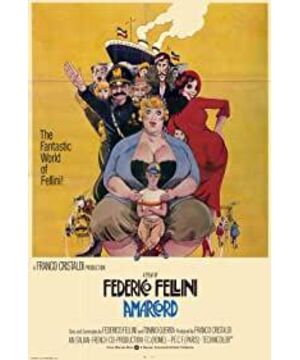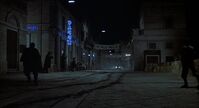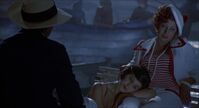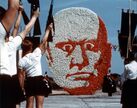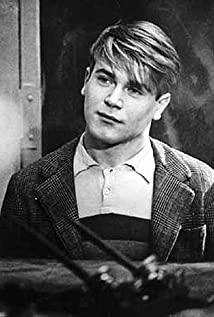There are several important passages in the film, one of which depicts young Fellini going to the church to confess. However, the priest not only does not have a confession room, but also does not care about the content of the confession. He only cares about the beautiful layout of the flowers in the church, but talks about masturbation. At that time, the priest listened with gusto and kept asking questions. Fellini’s irony of religion has been reflected in many films, such as the appearance of the so-called miracles in "Sweet Life" to fool people, and the church costume show in "Rome" satirizes the exaggeration of the church. Practical nature, and the people's wishful thinking about the realization of their wishes for the Virgin in "Nights of Kalibia". At the beginning of "Sweet Life", Jesus was hoisted away by a helicopter, symbolizing that theology has been replaced by science in modern society, faith has disappeared, and rationalism has accelerated people's moral decline and spiritual confusion.
There was a passage where the residents of the town made small boats to go to see Mussolini's big boat. After returning, it was foggy and Fellini's grandfather could not find his way home. This paragraph symbolizes people's blind worship of idols (fascism), making themselves lost in the world in which they live. Fellini didn't describe much about the political events in Italy in the fascist era. He also remembered the episode in "Rome" where everyone came out of the theater but was bombed and hid in the air-raid shelter. However, Fellini thoroughly deconstructed and ridiculed politics in "Sailing a Sail". The occurrence of political historical events depends on the reckless behavior of a young man, and history is triggered by accidental events, which is basically in line with Foucault's structuralism.
At the end of the movie, it ended with a noisy wedding. The woman Fellini had a crush on married an officer. Everyone in the town came to celebrate, and this wedding symbolized the end of Fellini's youth. Just like in "The Wanderer", Fellini will leave his hometown and enter a new stage of life. Although this wedding looks lively and festive, there is a deep sadness inside, which comes from the feeling of time passing and the melancholy of farewell. This kind of sadness is very prominent in Fellini's later works. The elderly Fellini has a lot of feelings about time and age, just like the final farewell of Jin Ji and Frege in "Dancing Country"
View more about Amarcord reviews


